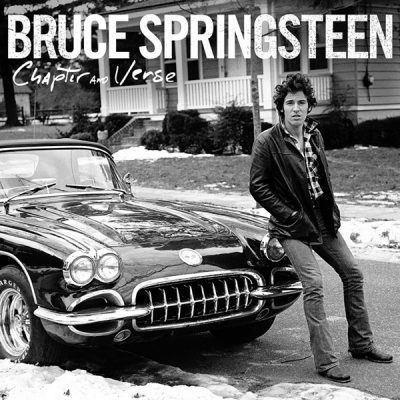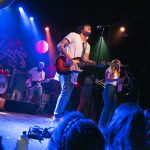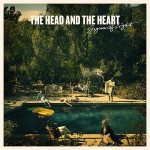
What does it mean to be an American? This soil is sown deep with blood, sweat, tears, hopes and dreams. This nation houses “huddled masses yearning to breathe free.” This country is affected by poverty, inequality, racism, violence and corruption. This is a place of immigrants and hard workers, challenge and bravery.
Perhaps that is where the American spirit really lies — in back alleys and small towns, in the fields of the Midwest and the rocky trails of the Appalachian Mountains. The American voice echoes “from sea to shining sea.”
To capture the collective voice of the millions, to sing the hopes and dreams of the masses, is no easy task. And yet, there is one man who knows the American voice better than his own: Bruce Springsteen.
With over 200 songs, Springsteen (also known as “The Boss”) has somehow never run out of stories to tell. He’s always had a talent for writing, and his lyrics hold a longing and nostalgia akin to the great American poets of the beat generation: Jack Kerouac, Allen Ginsberg and William S. Burroughs.
Springsteen released his newest album, “Chapter and Verse,” on Friday, his 67th birthday. The 18-track collection, all selected by Springsteen, is a companion album to his upcoming memoir, “Born to Run,” set to release Tuesday. The album features five unreleased tracks from bands all the way back in Springsteen’s days before the E Street Band: The Castiles, Steel Mill and The Bruce Springsteen Band. The gem of these tracks is “Henry Boy,” an early demo of what would become “Rosalita (Come Out Tonight).”
Much like many of his other albums, “Chapter and Verse” tells a story. Only instead of an account of the dark streets of the city or girls dancing across the front porch, this is Springsteen’s own life. The unreleased tracks date all the way back to 1966, seven years before his first album, “Greetings from Asbury Park, N.J.” These songs, as well as the picks from the early ‘70s (“Growin’ Up” and “4th of July, Asbury Park (Sandy)”), are a younger Springsteen. He’s clear in his lyrics about the time and trials of a boy growing and living on the Jersey Shore.
There is no denying that though Springsteen has almost 20 albums, there are songs that shine above the rest, his “best singles.” He’s picked some of these for the album, classics that even the casual rock and roll fan would recognize.
“Born to Run,” the eighth track on the album, is possibly the best song he’s ever written. It’s definitely one of the most well known, making an appearance at every concert he plays (which are known for going as long as four hours). Springsteen said of the song in an interview with Vanity Fair, “A good song takes on more meaning as the years pass by.”
It’s hard not to comment on every track of “Chapter and Verse,” because each song is a classic in the eyes of Springsteen fans as well as rock and roll appraisers. “Badlands,” “The River” and “My Father’s House” are deep, introspective looks into teenage romance and struggle. They reflect Springsteen’s own life in deeply personal ways that he will hopefully explore more in his autobiography.
While “Born to Run” might be the best song of his repertoire, “Born in the U.S.A.” is the most famous. Appearing as track 12, it has been famously misinterpreted as a patriotic anthem. In reality, the 1984 single is a harsh but raw and beautifully written critique on the treatment of Vietnam War veterans when they returned home.
That’s not to say Springsteen isn’t patriotic. Track 16, “The Rising,” appeared on his 12th album. This song, as well as the entire album, is about communal struggle and the hint of hope in the dark. Possibly written in the aftermath of the Sept. 11 attacks, “The Rising” is an anthem of coming together.
The music tradition of America is vast and complex. It’s clear that Bruce Springsteen has changed the field of rock and roll, as well as what it means to be an American. We stand strong individually, stronger together and we persevere in the face of hardship. Springsteen has always had faith in the American people, like he says in the final track, “Wrecking Ball”: “Come on and take your best shot, let me see what you’ve got / Bring on your wrecking ball.”














